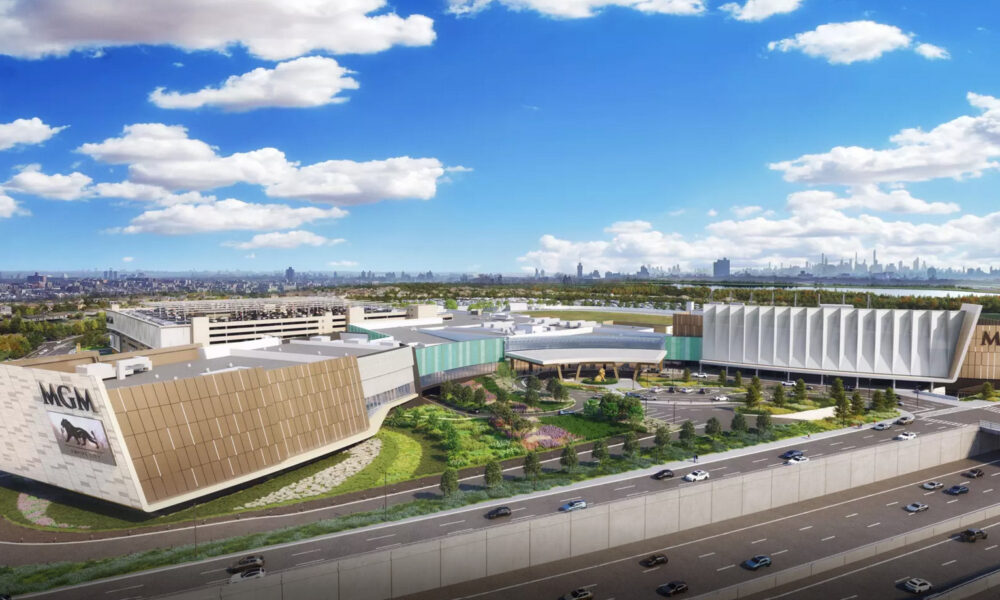In their third-quarter earnings call, executives of Vici Properties were at pains to defend tenant MGM Resorts International’s pullout from contention for a Class III casino in New York City. Their remarks were made as part of an October 31 discussion with Wall Street analysts.
“It certainly didn’t take us by surprise,” Vici CEO Ed Pitoniak said of the MGM withdrawal, which nonetheless shocked many in the industry and the New York area. He called the Gotham casino-selection process “an evolving situation” and described MGM’s retreat as “a very sound non-allocation decision.”
Without a Manhattan-based casino, Pitoniak elaborated, it was unclear whether the Big Apple could ever evolve into a national, let alone international, casino destination. Instead, he said, three regional casinos bunched together would be unlikely to support the tax and investment structure New York has imposed.
That said, Pitoniak revealed that Vici was in dialogue with other New York City casino applicants “and could certainly be of service to them with capital” if the fundamentals of their projects are sound. Even so, the result would have to be “the most profitable regional casino in America,” more so than MGM National Harbor or Encore Boston Harbor.
A question about Live! Virginia in Petersburg representing a competitive threat to MGM National Harbor sparked executive mirth. “The distance may seem like an hour,” joked CFO David Kieske, “but if you’ve ever been in D.C., the traffic makes it longer.”
Waxing seriously, he said demographic and geographical variations are in play between the two casinos. “The customer base is a little different,” Kieske said of Petersburg.
Markets that Vici unequivocally coveted are downtown Las Vegas and vicinity. “We love the regulations and the support from the state of Nevada,” said Kieske. “There’s some great operators in that space,” particularly Station Casinos and Golden Entertainment.
Gaming, Kieske added, “is still the top of the pyramid for us,” despite Vici’s diversification into other experiential-real-estate fields, including university athletic facilities, a topic that dominated much of the hour-long conversation.
Pitoniak pointed to Vici’s third-quarter earnings growth. “I want to emphasize that our model is capable of performing even in times of uncertainty.” He noted that the real estate investment trust was coming off “a rough week for REITs and especially for a gaming REIT,” as weak Las Vegas results have pummeled gambling stocks.
On an MGM tangent, Vici execs addressed the sale of Northfield Park’s operating company to Canadian private equity firm Clairvest, which Vici had handled. Kieske described Clairvest as “a top-performing private-equity fund out of Toronto” and one well-recognized in the gaming sector.
Queried as to whether the Northfield Park flip was a one-off deal, Kieske responded that he hoped for more opportunities with Clairvest. “We’ve really enjoyed getting to know them. We hope to grow that portfolio.
“We continue to believe in the durability of the sector,” Kieske continued, regardless of recent headwinds. “At Vici, we take the long view. We’re still big believers in Las Vegas.” He cited the ongoing strong performance of the Venetian and Palazzo. He said that 2026 is “on track to be a great year for The Venetian’s group business.”
Conventions, Kieske said, are an underappreciated market segment, noting that Vici owns six million square feet of convention space in Sin City. But “We don’t aim to grow for growth’s sake.”
While noncommittal on Vici’s option to buy the Caesars Forum convention center on the Las Vegas Strip, Kieske said, “The world is so short-term, ADD-focused, there are times you don’t step back and focus on what a great destination Las Vegas is.”
Pitoniak took up the theme, saying that outside Vegas, convention centers are badly underinvested. As an example, he cited New York’s Javits Center and the related Wynn Resorts casino project. “But as well all know, that project ain’t happening,” reinforcing the Javits Center’s isolation. He contrasted that to Las Vegas’s constant reinvestment in its convention centers.
Turning to the tribal-casino sphere, COO John Payne characterized Vici’s construction loan to the North Fork Rancheria as conventional, saying Vici had many other tribal relationships. “We do have dialogues with other struts, but ultimately, it would be a credit investment. We’ll look for ways to deploy smart capital with good tribes as the opportunities arise.”


